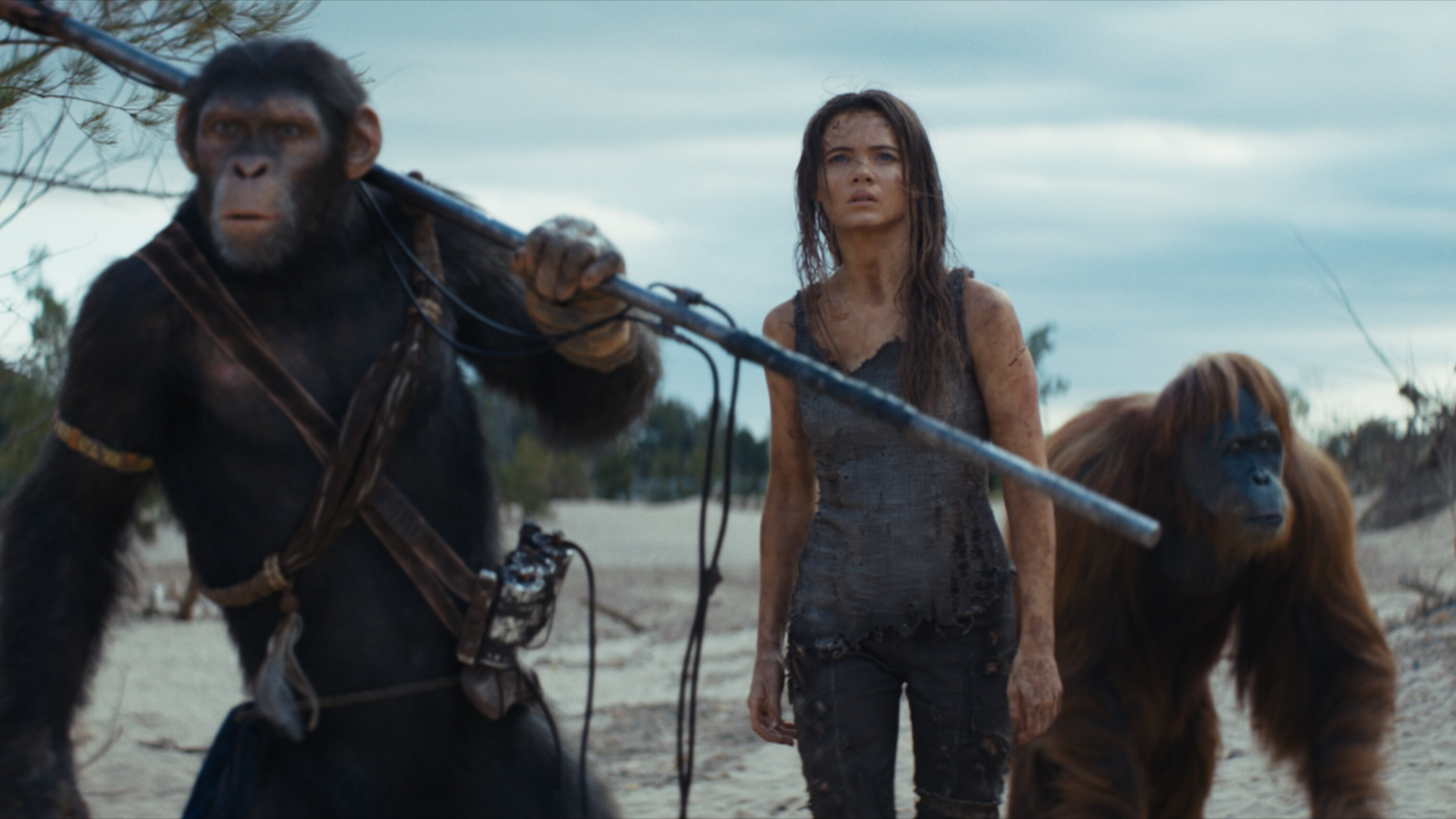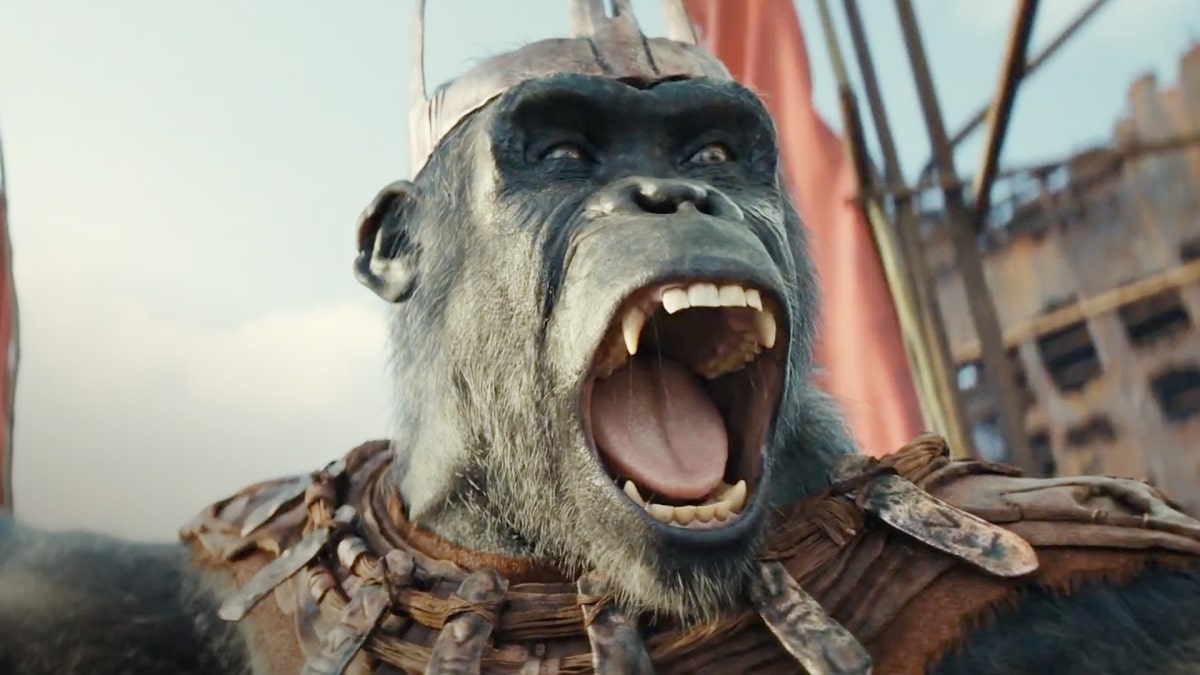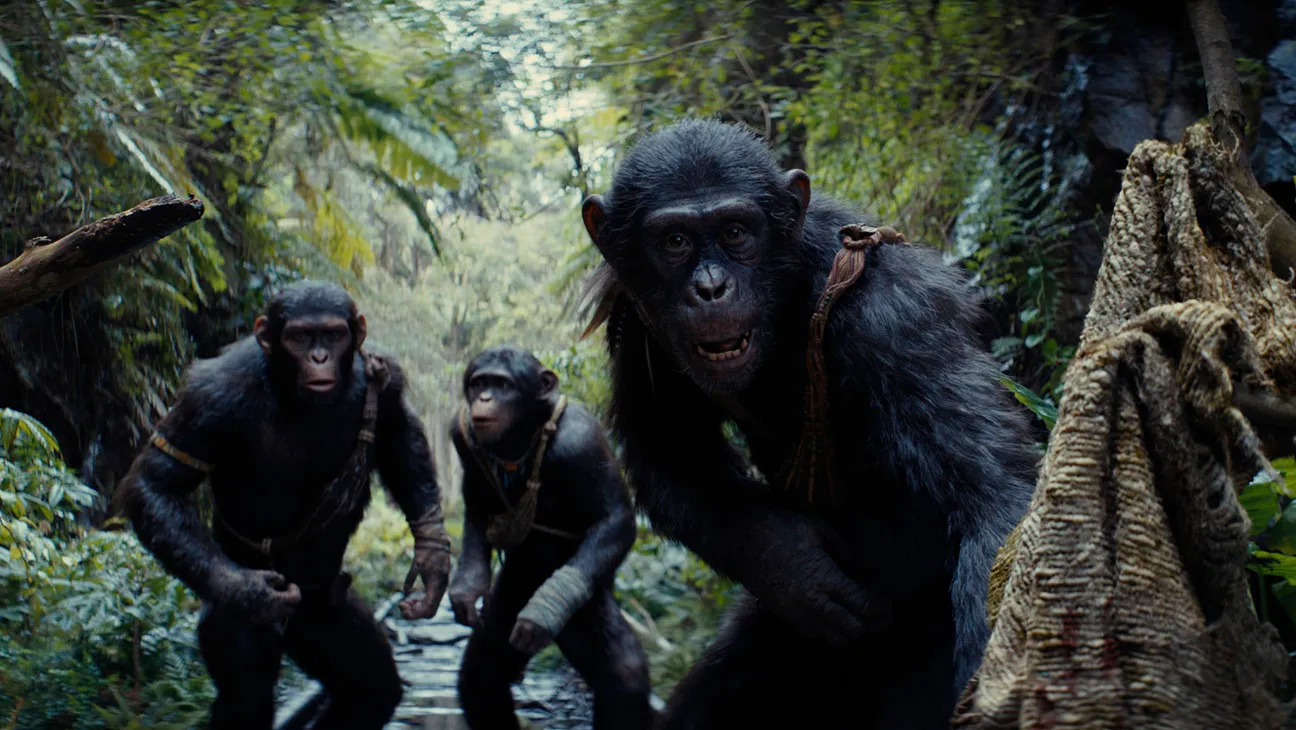[ad_1]
Nothing captures the imagination like an anthropomorphic monkey. Ever since a stop-motion King Kong scaled the dizzy heights of the Empire State Building in Merian C. Cooper’s 1933 classic, ominous ‘What if?’ stories about our closest living relatives have proven a surefire way to get audiences’ bums on seats.
Perhaps, then, we shouldn’t be surprised that the Planet of the Apes franchise has endured for so long, but it’s still remarkable that a premise introduced in 1968 remains compelling enough to attract Marvel-level investment from increasingly risk-averse studios.
The tenth (tenth!) entry in the Planet of the Apes series is the grandly-titled Kingdom of the Planet of the Apes; a sequel-of-sorts to Matt Reeves’ excellent War for the Planet of the Apes (2017) and a jumping-off point for what will surely become another Apes saga. This time around, there’s no Andy Serkis – he consulted with director Wes Ball on the new film’s script, but had no hand in its production – though Kingdom still manages to stand on its own two feet (knuckles?) as a thoroughly entertaining post-apocalyptic adventure.
Set “many generations” after the events of War, Kingdom centers on an intelligent young ape called Noa (Owen Teague), whose clan of eagle-rearing chimpanzees live a tranquil existence in the oasis left behind by Caesar. Humans are few and far between, and those who do emerge from the shadows are feral and mute.
It all seems rather pleasant (for the apes, anyway) until a violent tribe of coastal simians – led by the tyrannical bonobo Proximus (Kevin Durand) – capture Noa’s clan to further populate their own ape kingdom (title drop!), with Proximus hell-bent on advancing his species through the discovery of human technologies. Having avoided capture himself, Noa embarks on a cross-country journey to free his family and friends, with an inquisitive human girl (Freya Allen) and a wise-cracking Orangutan (Peter Macon) in tow.

If that synopsis reads to you like the plots of Dawn (2014) and War rolled into one, you’re not far wrong. Kingdom’s maniacal antagonist, imprisoned apes, and West Coast road trip are all reminiscent of recent Apes movies, and those left unmoved by Reeves’ trilogy won’t find anything revelatory in Ball’s latest effort. There is, however, enough new meat on the bone here to warrant the ticket price for existing franchise fans.
For starters, Kingdom uses the absence of Caesar to its strength. Although Serkis’ simian doesn’t feature physically, he takes on an almost mythical role for the apes that do continue to survive – and thrive – on this pandemic-ravaged Earth. Caesar’s ‘apes together strong’ doctrine is misinterpreted (willfully or otherwise) by a paranoid Proximus as a call to arms against the last remnants of humanity, while the scholarly Roka continues to share Caesar’s hope that apes can live side-by-side with humans as equals.
Kingdom is the most philosophical of the recent Apes movies; it lays bare the same question at the heart of every film in the franchise – is there room for competing intelligent species on one planet? – in a way that feels more urgent, perhaps because we’re now approaching the moment at which Charlton Heston crash-landed on Earth in the original movie’s imagined future (if indeed Ball and co. decide to go that way). It leaves you wondering when, if, and how this centuries-spanning story will end.

Proximus is also a refreshingly interesting villain. He believes that the only way to assert true dominance is to become human, in a way. He despises humanity, but his hate is driven by envy. He wants to achieve, for apes, what humans achieved in the time before the apocalypse, and although his proposed method for doing so is a little – okay, very – silly, his motivations are markedly different from those of previous villains in the series.
That said, the film takes too long to introduce Proximus, and we’re not given enough time to digest his perspective before all hell breaks loose in the final act. William H. Macy plays a sort of court jester-cum-private tutor to Kingdom’s antagonist; he’s a human character who teaches his ape master Roman history and fuels his emperor complex (hence the Proximus name), while also harboring deep-rooted ambitions for his own species. The relationship between the pair makes for an interesting role reversal, but again, Macy’s character is all too quickly brushed aside in favor of the series’ customary Kong vs. Kong action.

The CGI-fueled set pieces in Kingdom are downright jaw-dropping, mind. As we’ve come to expect from Weta FX, the film’s myriad ape characters are both life-like and distinct – Durand’s Proximus is a highlight – and the lengthy water-based sequences rival those in Avatar: The Way of Water for realism.
Kingdom is also packed to the rafters with nods to Apes movies past. In one scene, Ball inverts the enclosure sequence in Rise (2011) by having the apes appear aghast at a human’s ability to speak, while Linda Harrison’s Nova and Heston’s Taylor are referenced on several occasions. This is a movie that rewards long-time Planet of the Apes fans, but also one that can exist as a standalone trilogy-starter. Kingdom ultimately succeeds because of that dichotomy; it’s essentially more of the same, but the same is still interesting enough to propel another Apes era into orbit.
Kingdom of the Planet of the Apes is released in the US on May 10, and in the UK and Australia on May 9.
You might also like…
[ad_2]
Source Article Link

